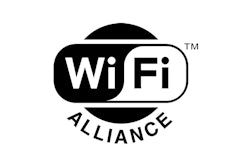Artificial Intelligence will make society smarter, leaner and more efficient. But first, startups and businesses must enable the workforce of the future and pivot business models to incorporate AI.
Mundane tasks such as driving, scheduling and logistics will all be handled by an AI assistant with multiple input points, such as microphones around your house and smartphones. The AI assistant will be the central nervous system of your life and connected smart home.
In the future, when you summon a shared autonomous car from your phone to go out to dinner, your AI assistant will automatically notify the restaurant of your ETA and dietary restrictions. This automation will create business opportunities for forward-thinking entrepreneurs first.
As entrepreneurs think about the future of AI, they have to recognize the need to be platform-agnostic, as AI of the future will work across multiple platforms, utilities and applications. For example, Zoox, which is working toward fully autonomous vehicles, could incorporate restaurant AI input into the Zoox platform if they opened their API to third-party developers.
Opportunities such as autonomous cars are creating a market for robots and AI solutions, and the future is bright. The market is projected to grow to $153 billion by 2020, comprising $83 billion for robotics and $70 billion for AI-based analytics, according to Bank of America Merrill Lynch.
For the market to realize its true potential, we have to get over the skills gap. Today one in three businesses in the U.S. is experiencing difficulty filling positions due the skills gap.
In 2020, Millennials will make up over a third of the global workforce, and they should be welcomed. Twenty-nine percent of Millennials are willing to spend their personal time and money to learn a new skill. These Millennials are driven, intellectually curious and determined to learn new skills, no matter the cost or time investment.
The desire of the Millennials to learn new skills and master them at no cost to a business will start to help the U.S. get over the skills gap but not completely. As incumbent job-holders and industries merge and are replaced with artificial intelligence and robots, there will be resistance to innovation. In response, the key is for businesses is to meet that resistance with open ideas.
Beth Comstock, vice chair of General Electric, recently told the New York Times, “Every company has people who don’t want to change the way things have been done. But often people are looking for an alibi to not try something new.”
If there is resistance, will it come from your employees or from the industry as a whole? If it is from your employees, you should heed the advice of Comstock and embrace an open innovation culture that fosters creativity across multiple disciplines and skills.
Sally-Ann Williams, senior program manager with Google Australia told The Australian newspaper, “The reality of a digitally disrupted workforce means that we are seeing a greater intersection of disciplinary skills than ever before, and not just in cutting-edge areas where we blur the skills of medicine and technology, or art and science.”
Williams adds there’s an “ever-growing overlap” between computer science and the core skills from sectors that include finance, advertising, law and agriculture.
The overlap of skills that Williams describes is the future of innovation. For businesses to be truly innovative, they have to hire individuals with diverse backgrounds that can work as a team, solve big problems and improve the overall quality of life.
And that just happens to be the beauty of Artificial Intelligence. The best AI systems also solve big problems and improve the overall quality of life. Alongside the right workforce, Artificial Intelligence will create tremendous opportunities for entrepreneurs and companies.
Grayson Brulte is the Co-Founder & President of Brulte & Company.






















